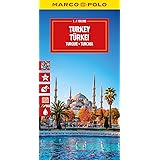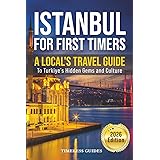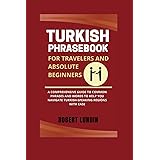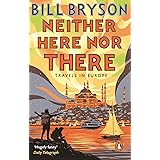Greeks from Anatolia and eastern Thrace often have endings with ‘idis’, ‘adis’ as well as the Turkish ‘oglou’. [Many Pontic Greeks from the Black Sea region of Anatolia have surnames ending with idis, e.g. Jasonidis.]
Some Greek surnames are derived from Turkish words or other languages which have had ties with Greece. This does not signify foreign ancestry. ‘Kara’ is the Turkish word for black as in Karageorgos (black George). My own surname, Topalidis, has been derived from one of the following Turkish words:
– ‘topal’ which means ‘lame’ or
– ‘top’ meaning ‘cannon’ or
– ‘topalti’ which means ‘the level space behind a parapet of a rampart where guns are mounted in a fort’.
The surname Katsakis (as in the author Lica Catsakis) is not a patronym from Crete, but is actually derived from the Turkish word ‘kachak’ which means fugitive or escapee.
During the Ottoman period, surnames with Turkish suffixes such as “Hatzi-“, “Kara-“, “-(i)lis”, “-tzis”, and “-oglou” became common, especially among Anatolian Greeks. It is not clear when stable family surnames became widely used. Though elite families often had stable family names, many of the “last names” used by Greeks into the 19th century were either patronymics or nicknames. It is also possible that family names were simply not recorded because Ottoman administrative practice preferred patronymics, and did not require surnames.
• Kara-: the Greek word for “cart” and the Turkish word for “black”, for example “Karatasos”.
• -akis (-άκης): associated primarily with Crete (except Anogeia) and the Aegean Islands, it is a diminutive, such as Giorgos becoming Giorgakis for the young Giorgos. Examples are: “Mitsotakis”, “Theodorakis” and “Doukakis”.This suffix was also very common for Cretan Turks up until they were officially changed with the Surname Law. This suffix was introduced in the 19th century.
• -elis (-έλης) and -ilis (-ιλής): from the Turkish suffixes for agent, possession and origin, common in western Asia Minor, Mytiline, Lemnos and Imbros. Examples are: Myrsilis, Katselis, Papadelis, Manelis.
• -lis (-λής). Turkish suffix for “of” a place, like the Greek suffixes -tis and -otis. Examples are: “Karamanlis” and “Kasdaglis”.
• -oglou (-όγλου): from the Turkish -oğlu meaning “son of”, seen in families from Asia Minor. Examples are: “Tsolakoglou”, “Ardizoglou” and “Patsatzoglou”.
• -tzis, -tsis (-τζής, -τσής) and feminine (-τζή, -τσή): Turkish suffix to signify a profession, like the English -er in Baker or Butcher. Examples are: “Devetzi” and “Kouyioumtzis”.
https://en.wikipedia.org/wiki/Greek_name
https://www.quora.com/Why-do-some-Greek-surnames-end-with-o%C4%9Flu-which-means-son-of-in-Turkish
https://www.quora.com/How-do-you-explain-the-Turkish-surnames-of-some-modern-Greeks






















[…] https://www.booksonturkey.com/greek-surnames-with-turkish-origin/ […]